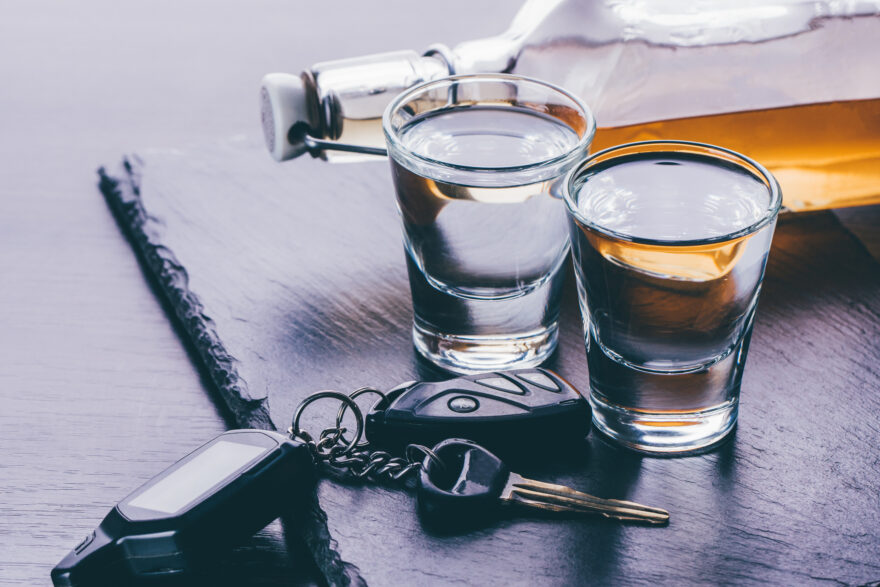
Driving under the influence (DUI) is a serious offense that poses significant risks to public safety. In an effort to deter drunk driving and ensure road safety, many states, including Maryland, have enacted implied consent laws. These laws compel individuals suspected of DUI to submit to chemical tests, such as breath, blood, or urine tests, to determine their blood alcohol concentration (BAC). This article will delve into the implied consent law in Maryland and explore its implications for DUI cases.
What is Implied Consent?
Implied consent laws essentially state that by operating a motor vehicle on public roads, drivers are deemed to have given their consent to chemical testing if law enforcement officers have reasonable grounds to believe they are driving under the influence of alcohol or drugs. This means that if an individual refuses to take a chemical test, they may face administrative penalties, such as the suspension of their driver’s license, even before their DUI case goes to court.
Maryland’s Implied Consent Law
Maryland’s implied consent law is outlined in the Transportation Article of the Maryland Code, under Section 16-205. According to this law, any person who drives or attempts to drive a motor vehicle on a public highway, road, or street in the state is deemed to have consented to take a chemical test if a law enforcement officer has reasonable grounds to believe they were driving under the influence. The test must be conducted within two hours of the individual’s arrest.
The types of chemical tests authorized under Maryland’s implied consent law include breath, blood, and urine tests. Refusing to submit to these tests can result in administrative penalties, such as a driver’s license suspension. For a first-time refusal, the driver’s license may be suspended for 270 days, while subsequent refusals can result in a 2-year suspension.
Implications for DUI Cases
Maryland’s implied consent law has significant implications for DUI cases. When a driver refuses to take a chemical test, prosecutors might use this refusal as evidence of consciousness of guilt, arguing that the refusal suggests the driver knew they were intoxicated and attempting to avoid incriminating themselves. This can be a powerful argument in court, potentially influencing the judge or jury’s perception of the case.
The results of chemical tests can play a crucial role in determining the outcome of a DUI case. If the BAC is found to be above the legal limit of 0.08%, it can strengthen the prosecution’s case against the driver. On the other hand, if the test results are inconclusive or the BAC is below the legal limit, the defense may have a stronger argument to challenge the charges.
It’s important to note that while implied consent laws allow for the suspension of a driver’s license based on refusal to submit to testing, they do not replace the criminal DUI process. A driver who refuses a chemical test can still face DUI charges in court, and the outcome of the administrative license suspension does not necessarily determine the outcome of the criminal case.
Defending Against Implied Consent Violations
While implied consent laws are designed to discourage drunk driving and streamline the enforcement process, they can also raise legal and ethical questions. Drivers may refuse chemical tests for various reasons, including concerns about accuracy, fear of needles, or a desire to consult with an attorney before making a decision.
Defendants in DUI cases can challenge implied consent violations by arguing that their refusal was based on reasonable grounds, such as medical conditions or misunderstanding of their rights. Additionally, if law enforcement officers did not follow proper procedures or violated the defendant’s rights during the arrest or testing process, it could lead to evidence being suppressed or the case being dismissed.
Maryland’s implied consent law serves as a significant tool in the fight against drunk driving. It underscores the seriousness of the offense and its potential consequences. However, its implications for DUI cases are complex, as it intertwines with both administrative penalties and the criminal justice process. If you find yourself facing DUI charges or dealing with implied consent violations, seeking legal counsel is essential to understanding your rights and building a strong defense.
How can Alpert Schreyer Criminal Defense Attorneys help you on DUI cases in Maryland
At Alpert Schreyer Criminal Defense Attorneys, we understand the stress and uncertainty that come with facing DUI charges in Maryland. Our experienced team of attorneys is dedicated to providing you with the highest level of legal representation and support throughout every step of the legal process. If you’re dealing with a DUI case in Maryland, here’s how we can help you:
- Extensive Experience: Our firm boasts a track record of success in handling DUI cases across Maryland. Our seasoned attorneys are well-versed in the nuances of Maryland’s DUI laws and are committed to leveraging their experience to protect your rights and interests.
- Personalized Approach: We recognize that every DUI case is unique, and we take the time to understand the specific details of your situation. Our personalized approach ensures that we tailor our legal strategies to address your individual needs and circumstances.
- Thorough Investigation: Building a strong defense begins with a comprehensive investigation. Our skilled legal team meticulously examines the evidence, including police reports, witness statements, and testing procedures, to identify any inconsistencies or potential weaknesses in the prosecution’s case.
- Strategic Advocacy: Our attorneys are adept at developing strategic defense strategies designed to challenge the evidence presented against you. Whether it’s questioning the validity of sobriety tests, challenging the legality of the traffic stop, or highlighting flaws in testing procedures, we are committed to vigorously advocating for your rights.
- Negotiation Skills: We understand that not all DUI cases go to trial. Our negotiation skills are finely honed, and we are often able to secure favorable plea agreements or reduced charges, minimizing the potential impact on your future.
- Courtroom Experience: If your case does proceed to trial, our attorneys have a proven track record of courtroom success. We are skilled litigators who are not afraid to go to trial when it is in your best interests.
- Minimized Consequences: Being convicted of a DUI can lead to severe consequences, including fines, license suspension, and even jail time. Our goal is to help you navigate the legal system and work towards minimizing the potential consequences you face.
- Compassionate Support: We understand that facing DUI charges can be emotionally overwhelming. Our team is here to provide you with compassionate support, answer your questions, address your concerns, and guide you through every step of the process.
- Rigorous Defense: Our unwavering commitment to your defense means that we leave no stone unturned in our pursuit of justice on your behalf. We are dedicated to achieving the best possible outcome for your case.
When you choose Alpert Schreyer Criminal Defense Attorneys to handle your DUI case in Maryland, you are choosing a team of dedicated legal professionals who are relentless in their pursuit of justice. We are ready to stand by your side, protect your rights, and provide you with the strongest possible defense. Contact us today to schedule a consultation and take the first step toward securing your future.
Contact the Criminal Defense Attorneys at Alpert Schreyer Criminal Defense Attorneys in Maryland for Help Today
For more information, contact Alpert Schreyer Criminal Defense Attorneys to schedule a confidential consultation with a criminal defense attorney. Our team is available to assist clients in Lanham, Frederick, Rockville, Waldorf, Annapolis, and Lexington Park, Maryland.
We proudly serve Prince George’s County, Frederick County, Montgomery County, Charles County and the surrounding areas. Visit our law offices at:
Alpert Schreyer Criminal Defense Attorneys – Lanham Office
4600 Forbes Blvd Ste 201 Lanham, MD 20706
(301) 262-7005
Available 24/7
Alpert Schreyer Criminal Defense Attorneys – Frederick Office
25 E Patrick St #200 Frederick, MD 21701
(301) 381-1993
Available 24/7
Alpert Schreyer Criminal Defense Attorneys – Rockville Office
11140 Rockville Pike 550-J Rockville, MD 20852
(301) 364-3195
Available 24/7
